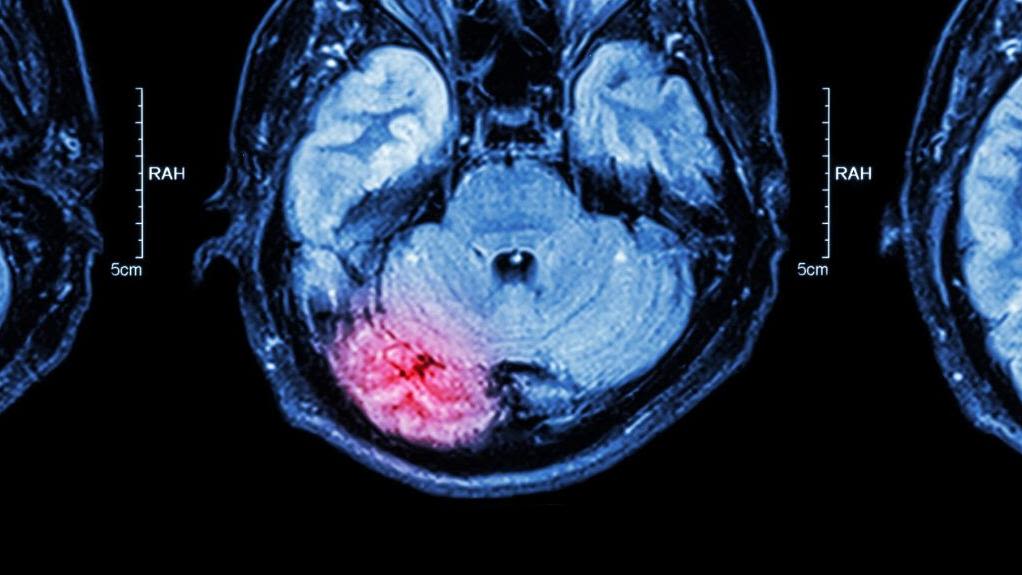

Traumatic brain injury (TBI) is a leading cause of death and long-term disability in young people. However, research in this area remains limited in particular due to a lack of data concerning head injuries sustained by the young population. An innovative longitudinal study designed and conducted by The Podium Institute is harnessing advanced magnetic resonance imaging (MRI) techniques to uncover why some children recover worse than others after they have sustained a head injury, for instance through playing sport.
In emergency departments, clinical assessments such as computerised tomography (CT) scans focus on detecting life-threatening injuries. However, many children with a normal-looking CT scan still experience lasting symptoms, highlighting that important aspects of brain injury may be missed on standard imaging.
Using advanced MRI techniques, this new study will explore various aspects of brain damage, including injury to nerve fibres, disruptions in brain metabolism, and changes in functional connectivity between brain regions. These sophisticated neuroimaging measures will be combined with cognitive testing along with self- and parent-reported information on head injuries. The aim is to identify key MRI biomarkers that can reliably predict both clinical recovery and sports-related outcomes, such as time to return to sport.
Mr Tim Lawrence (Nuffield Department of Clinical Neurosciences, Oxford University), consultant paediatric neurosurgeon and one of the study’s lead researchers, explained, ‘With growing concern regarding a potential link between mild or repetitive traumatic brain injury and long-term cognitive difficulties or even early dementia, there is a pressing need to identify the types of traumatic injuries that may pose a risk. Our study is a step towards better understanding of the mechanisms that underpin damage to the brains of children and adolescents suffering injury.’
Read the full story on the University of Oxford website.
more recommended stories
 Tuberculosis Breakthrough with Experimental Antibiotics
Tuberculosis Breakthrough with Experimental AntibioticsKey Takeaways Experimental antibiotics disrupt a.
 National Healthy Longevity Trial Receives Federal Support
National Healthy Longevity Trial Receives Federal SupportKey Summary Up to $38 million.
 Red Blood Cells Improve Glucose Tolerance Under Hypoxia
Red Blood Cells Improve Glucose Tolerance Under HypoxiaKey Takeaways for Clinicians Chronic hypoxia.
 Nanoplastics in Brain Tissue and Neurological Risk
Nanoplastics in Brain Tissue and Neurological RiskKey Takeaways for HCPs Nanoplastics are.
 AI Predicts Chronic GVHD Risk After Stem Cell Transplant
AI Predicts Chronic GVHD Risk After Stem Cell TransplantKey Takeaways A new AI-driven tool,.
 Red Meat Consumption Linked to Higher Diabetes Odds
Red Meat Consumption Linked to Higher Diabetes OddsKey Takeaways Higher intake of total,.
 Pediatric Crohn’s Disease Microbial Signature Identified
Pediatric Crohn’s Disease Microbial Signature IdentifiedKey Points at a Glance NYU.
 Nanovaccine Design Boosts Immune Attack on HPV Tumors
Nanovaccine Design Boosts Immune Attack on HPV TumorsKey Highlights Reconfiguring peptide orientation significantly.
 High-Fat Diets Cause Damage to Metabolic Health
High-Fat Diets Cause Damage to Metabolic HealthKey Points Takeaways High-fat and ketogenic.
 Acute Ischemic Stroke: New Evidence for Neuroprotection
Acute Ischemic Stroke: New Evidence for NeuroprotectionKey Highlights A Phase III clinical.

Leave a Comment